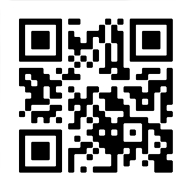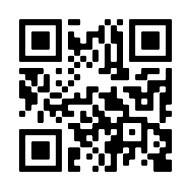Exploring the Most Influential Foreign Words in English Vocabulary
English is often called a “borrower” of a language—and with good reason. Over centuries, English has adopted words from countless languages, creating a vocabulary that’s as diverse as the cultures it has encountered. From French to Hindi, Arabic to Italian, these borrowed words—or loanwords—have enriched the English language, making it more expressive, versatile, and, frankly, a little quirky.
But which foreign words have had the biggest impact on English, and how are they used today? Let’s explore the fascinating world of loanwords that shape how we speak.
The French Connection: How French Changed English
After the Norman Conquest of 1066, French left an undeniable imprint on English. In fact, much of our legal, political, and culinary vocabulary stems from French. Here are a few examples:
Government and Law
- EXAMPLE: “Judge,” “court,” “jury,” “attorney.”
- USAGE: Many legal terms come from Old French, as the legal system in England underwent huge changes after the Norman rule.
Food and Dining
- EXAMPLE: “Cuisine,” “menu,” “restaurant,” “chef.”
- USAGE: French cuisine has had a global influence, and English borrowed many words to describe the elegance of French dining.
Fashion and Art
- EXAMPLE: “Chic,” “boutique,” “haute couture.”
- USAGE: French continues to dominate in the fashion and art world, giving English speakers an air of sophistication when discussing clothing and style.
Latin’s Lingering Influence
Though English is not a Romance language, its vocabulary is deeply rooted in Latin—thanks to the influence of both the Romans and the Church. You might be surprised at just how many common words trace their origins back to Latin. Understanding Latin prefixes and suffixes can be an enormous help in understanding English words for ESL students.
Scientific and Medical Terms
- EXAMPLE: “Animal,” “virus,” “species,” “laboratory.”
- USAGE: The scientific and medical communities rely heavily on Latin-based words, which are often used across multiple languages for consistency.
Religious Vocabulary
- EXAMPLE: “Religion,” “saint,” “divine,” “sacrifice.”
- USAGE: Many religious terms entered English through Latin, which was the language of the Christian Church for centuries.
The Spanish and Italian Additions
As trade routes opened and exploration expanded, English picked up words from both Spanish and Italian, especially in the areas of food, music, and culture.
Spanish
- EXAMPLE: “Cafeteria,” “patio,” “tornado,” “guitar.”
- USAGE: From the sunny patio to the delicious cafeteria, Spanish loanwords in English reflect everything from architecture to food to weather phenomena.
Italian
- EXAMPLE: “Pasta,” “opera,” “ballerina,” “soprano.”
- USAGE: Italian loanwords are particularly prominent in the arts and food, capturing the essence of Italian culture in just a few syllables.
Borrowed Words from Asian Languages
The rise of British colonialism in the 17th and 18th centuries brought English into contact with many Asian languages, particularly Hindi, Persian, and Chinese.
Hindi
- EXAMPLE: “Jungle,” “karma,” “pyjama,” “shampoo.”
- USAGE: These common words give a glimpse into the cultural and practical exchanges between Britain and India during the colonial era.
Chinese
- EXAMPLE: “Ketchup,” “gung-ho,” “typhoon.”
- USAGE: You may not realize it, but every time you put ketchup on your fries or hear the word typhoon, you’re speaking a bit of Chinese!
Arabic’s Influence on English
Arabic loanwords often entered English through trade, science, and mathematics during the Middle Ages. These words might not be as obvious, but they’ve left a lasting mark.
Mathematics and Science
- EXAMPLE: “Algebra,” “alchemy,” “algorithm,” “zero.”
- USAGE: Many mathematical and scientific concepts have Arabic origins, showing the influence of scholars from the Islamic Golden Age.
Daily Life
- EXAMPLE: “Coffee,” “sugar,” “lemon,” “sofa.”
- USAGE: Who knew your morning coffee or the sofa you relax on after work have Arabic origins? These common words are now staples in English vocabulary.
German and Germanic Words in English: A Strong Foundation
Since English is a Germanic language at its core, it’s no surprise that a large part of our everyday vocabulary comes from Germanic roots. Whether you realize it or not, you’re using words of German origin or influenced by Germanic languages all the time!
Basic Verbs and Everyday Words
- EXAMPLE: “Drink,” “bring,” “fight,” “strong.”
- USAGE: These core, everyday verbs and adjectives trace their roots to Old English, which is part of the West Germanic language family. They form the foundation of basic communication in English.
German Loanwords
- EXAMPLE: “Kindergarten,” “doppelgänger,” “wanderlust,” “rucksack.”
- USAGE: German loanwords often relate to specific concepts or experiences. For example, kindergarten (literally “children’s garden”) reflects the German approach to early childhood education, while wanderlust captures a feeling of a deep desire to travel and explore.
Cultural and Intellectual Terms
- EXAMPLE: “Zeitgeist,” “Schadenfreude,” “Übermensch.”
- USAGE: Many German words that have entered English reflect cultural, philosophical, or intellectual ideas that are tough to translate directly. Zeitgeist refers to the spirit of the times, and Schadenfreude describes the feeling of pleasure from someone else’s misfortune—concepts that needed their own words in English!
Scientific and Technical Terms
- EXAMPLE: “Blitz,” “gestalt,” “quartz.”
- USAGE: In fields like psychology, philosophy, and science, German has contributed a range of technical terms that capture complex ideas. For instance, gestalt refers to a whole that’s perceived as more than just the sum of its parts—a key concept in psychology.
The Beauty of a Borrowed Language
The beauty of English lies in its flexibility and openness to influence. By borrowing words from other languages, English has grown into a global language capable of expressing countless ideas and nuances. Understanding the foreign roots of English vocabulary not only enriches your language skills but also gives you insight into the fascinating ways cultures have interacted and influenced one another throughout history.
With German and Germanic roots playing such a vital role in forming the core of the English language—and loanwords from French, Spanish, Latin, Arabic, and other languages rounding it out—English truly is a linguistic melting pot. So next time you use words like “menu,” “guitar,” “ketchup,” “wanderlust,” or “schadenfreude,” take a moment to appreciate the global journey those words took before finding a home in English. Who knows—your next new word might have a story of its own!
If you’re interested in learning English or improving your English fluency, check out our English Programs and Session Calendar to see when the next session begins. You can apply today!














